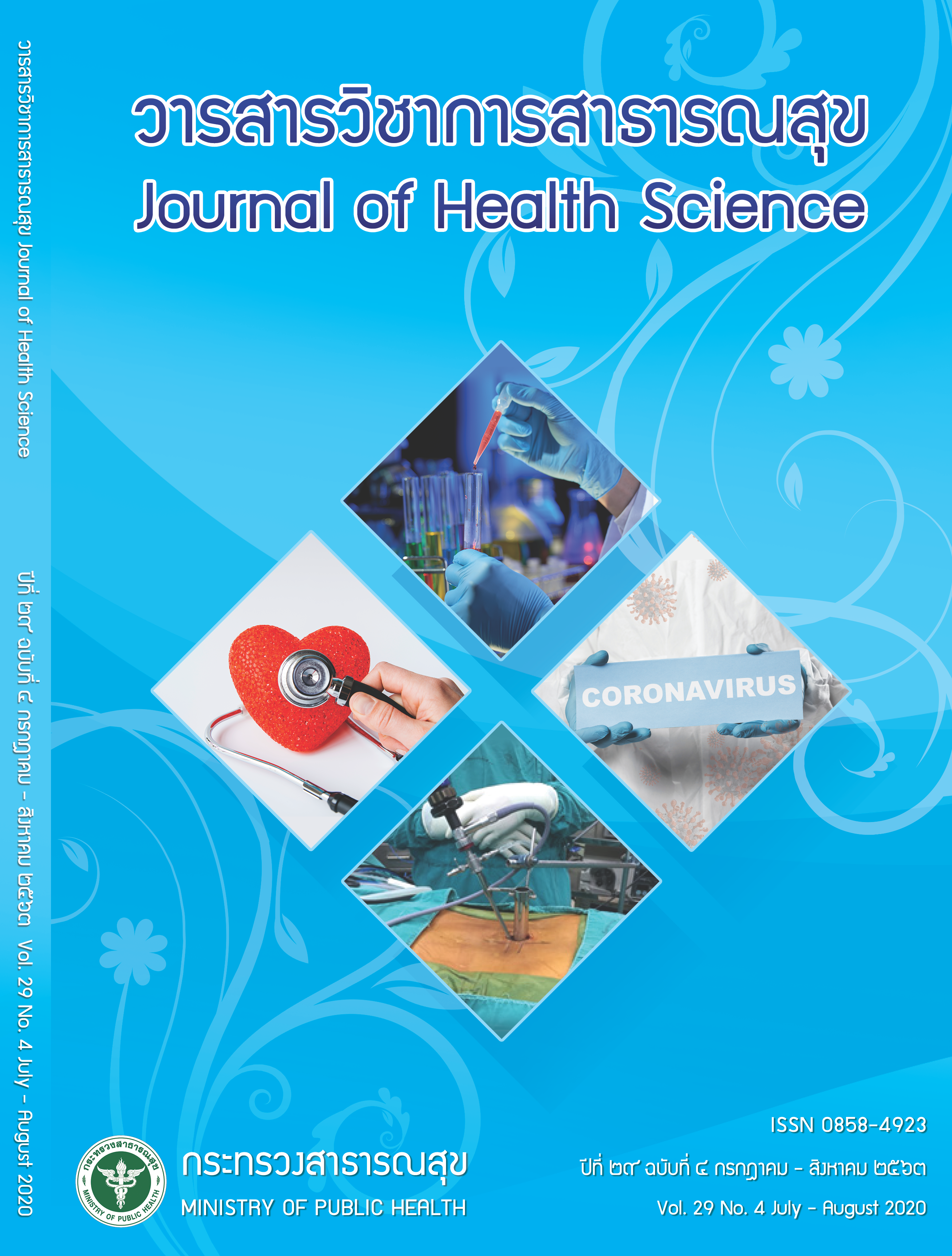Self-Assessment on Capacity Gaps and Readiness in Attaining National Accreditation for Ethics Committees under Ministry of Public Health of Thailand
Keywords:
ethics committee, national accreditation system, NECAST, Ministry of Public HealthAbstract
Roles of ethics committees are to protect the rights, safety, and well-being of human participants or volunteers in joining a research project. The goal of the Ministry of Public Health of Thailand is to develop a system for standardizing ethics committees that conforms to the national and international ethical standards. This quantitative research aimed at investigating the situation and assessing capacity gaps and readiness of ethics committees of health facilities and institutes under Office of Permanent Secretary, Ministry of Public Health, Thailand using a self-assessment form developed by the National Ethics Committee Accreditation System of Thailand (NECAST). The self-assessment form consists of 5 dimensions of standards with 15 aspects. Data was collected through a self-administered questionnaire survey from January to March 2018. The study revealed that organizations responding the NECAST self-assessment form consisted of 33 provincial public health offices (35.1%), 29 general hospitals (30.9%), 16 regional hospitals (17.0%), 15 Boromrajonani Colleges of Nursing (16.1%), and 1 College of Public Health (1.0%). Most Boromrajonani Colleges of Nursing, regional, and general hospitals (87.5, 64.3, and 100%, respectively) achieved readiness in Standard 2: Adherence to specific policies, Aspect 2.1: EC management. Regional hospitals, Boromrajonani Colleges of Nursing, provincial public health offices, general hospitals, and College of Public Health (13.3, 9.0, 0.0, and 0.0, respectively) met the minimum requirements for Standard 1.3: training of EC members, and structure and compositions of EC (membership requirements), particularly in providing for its members to receive introductory training and continuous education. Out of 94 organizations, only one Boromrajonani College of Nursing met the whole requirements and had readiness in the 5 dimensions of standards with 15 aspects. In conclusion, the capacity gaps of the ethics committees under Office of Permanent Secretary, Ministry of Public Health that need to be improved urgently were training and capacity strengthening of EC members, and management of the organizational structure and composition of EC members.
Downloads
References
World Health Organization. Standards and Operational Guidance for Ethics Review of Health –Related Research with Human Participant. Geneva: World Health Organi-zation; 2011.
สำนักงานคณะกรรมการวิจัยแห่งชาติ. ระบบการรับรองคุณภาพ คณะกรรมการจริยธรรมการวิจัยในมนุษย์ (Na-tional ethics committee accreditation system of Thailand: NECAST) [อินเทอร์เน็ต]. [สืบค้นเมื่อ 20 ก.ค. 2562].แหล่งข้อมูล: http://ohrs.nrct.go.th
สำนักวิชาการสาธารณสุข. สรุปสถานการณ์การดำเนินงานจริยธรรมการวิจัยเกี่ยวกับมนุษย์ของสำนักงานปลัดกระทรวง- สาธารณสุข ประจำปี 2562. นนทบุรี: สำนักงานปลัด-กระทรวงสาธารณสุข; 2562.
Berdie DR, Anderson JF, Niebuhr MA. Questionnaires: design and use. Metuchen, NJ: Scarecrow Press; 1986.
Williams A. How to write and analyses a questionnaire. Journal of Orthodontics 2010;30(3):245–52.
Kadam R, Karandikar S. Ethics committees in India: facing the challenges. Journal Perspectives in Clinical Research 2012;3(2):50-6.
Denholm JT, Bissell K, Viney K, Durand AM, Cash HL, Roseveare C, et al. Research ethics committees in the Pacific Islands: gaps and opportunities for health sector strengthening. Public Health Action 2017;7(1):6-9.
Panichkul S, Mahaisavariya P, Morakote N, Condo S, Caengow S, Ketunpanya A. Current status of the research ethics committees in Thailand. J Med Assoc Thai 2011; 94(8):1013-8.
Arshad A, Arkwright PD. Status of healthcare studies submitted to UK research ethics Committees for approv-al in 2004-5. J Med Ethics 2008;34:393-5.
Council for International Organizations of Medical Science (CIOMS). International ethical guideline for health-re-lated research involving humans. 4th edition. Geneva: Council for International Organizations of Medical Science; 2016.
World Health Organization. Handbook for good clinical research practice (GCP): guidance for implementation. Geneva: World Health Organization; 2005.
World Health Organization. Guideline for good clinical practice current step 4 version [Internet]. [Cited 2019 Jul 13]. Available from: https://database.ich.org/sites/default/files/E6_R2_Addendum.pdf
Downloads
Published
How to Cite
Issue
Section
License

This work is licensed under a Creative Commons Attribution-NonCommercial-NoDerivatives 4.0 International License.







